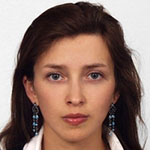Deprecated: Function create_function() is deprecated in /home/klient.dhosting.pl/tredo/otok.robert/healthrights/public_html/administrator/components/com_zoo/tables/category.php on line 212
The Fellowship aimed to develop a new generation of lawyers with expertise in human rights and patient care, increase the capacity of local NGOs, and build this field through trainings and the development of materials and networks.
Fellows played a key role in the regional Practitioner Guide Initiative. The Practitioner Guides are a series of practical, how-to manuals for lawyers on taking human rights in patient care cases. They examine patient and provider rights and responsibilities and procedures for protection at national, regional, and international levels. The Fellows helped ensure that the Practitioner Guide were current and up-to-date, coordinated and helped provide trainings based upon the guide, and worked on patient-friendly versions of the guide targeted at marginalized populations, as well as materials for health providers.
Fellows additionally developed their legal skills through work with their mentors and participated in regional professional development opportunities, such as a Study Tour of the European human rights system in Strasbourg, France; the World Congress on Medical Law in Zagreb, Croatia; and the European Conference on Health Law in Leuven, Belgium. The various Fellows also met together once a year for an orientation and targeted training.
ARMENIA
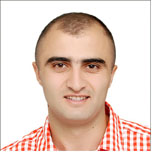
ARTUR GRIGORYAN (2012-CURRENT)
After acquiring a Master’s degree in Law, I have been working and volunteering in the area of ecology and environmental rights. Due to my experience in the sphere of mining activities, I have been faced with blatant violations of basic Human Rights in the communities surrounding the mining zones: neither the workers nor the inhabitants of those communities had even minimum safety from diseases and infections as a result of mining. Moreover, there were no legal regulations for analyzing, insurance or compensation of the damage caused to the employees or residents of noted communities. Thorough examination of the healthcare situation in many regions of Armenia raised my strong interest concerning the overall legal and practical issues of the health care situation among people living in poverty.
During the fellowship I anticipate to expand my knowledge and practice framework by conducting research in the sphere of legal regulations on the examination of the health care situation among patients; ensuring that the Practitioner Guide is current and up-to-date; working on patient-friendly materials; coordinating and assisting my NGO host in providing trainings on human rights in patient care to lawyers, physicians, other NGOs working in the field and their beneficiaries; and collecting cases for preparing shadow reports. It is very important to raise awareness of patients on their rights and rights protection mechanisms, to empower them to protect their own rights.
One of the main spheres of interests is also the review of implementation of the international treaties, which Armenia has ratified on public health concerning the issues of patient’s right and conducting research or comprehensive analysis of the area, raising the public awareness on the problems and possible solutions. As a result, legal regulations may be developed to cover the gaps of the legislation this sphere and recommended to legislative bodies.
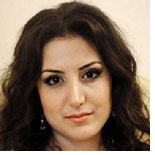
VIOLETA ZOPUNYAN (OCTOBER 2009-2012)
I started my Fellowship on Human Rights in Patient Care in Armenia in October 2009. The Fellowship has provided me with the opportunity to enhance my knowledge and skills related to human rights in general and heath rights in particular. Although key principles of those rights are codified in Armenian legislation, violations of patient rights are very common and vulnerable populations are at the greatest risk. I am based at the Antidrug Civil Union, a local NGO that implements harm reduction and support projects among IDUs (injecting drug users), including people living with HIV/AIDS.
My host NGO supports me in exploring and updating the Armenia Practitioner Guide PG), communicating with people at risk to get their feedback, building links with governmental and civil society organizations, and enriching the project website’s (www.healthrights.am) content. Through this work, I have gained an understanding of why the Armenian health care legislation needs to be streamlined with international and regional human rights standards to protect the rights of people in need. Building on the Practitioner Guide to research Armenian health care legislation, identify gaps, and draft recommendations for reform has been of particular interest for me.
I believe that dissemination of the Practitioner Guide and trainings and advocacy based on it will help bring the main concerns of vulnerable populations to decision-makers. The great support and encouragement of my national and international mentors have played a significant role in my professional progress. At the beginning of my second year of the Fellowship I had the opportunity to share the knowledge about human rights in patient care with medical/legal professionals and NGOs, facilitate the PG trainings and other workshops for legal and medical practitioners, and improve my legal practical skills.
Through this work, I have gained an experience in making online (website) legal consultations, updating the PG and developing Patient Friendly Versions of the PG for 3 groups of patients, among the other activities. In my opinion all the projects of the Fellowship have been interesting and useful for my professional growth; that is why I can hardly separate them. Building on the Practitioner Guide to research Armenian health care legislation, identify gaps in legislation, and draft recommendations for reform have been of particular interest for me. I believe that dissemination of the Practitioner Guide and trainings and advocacy based on it will help bring the main concerns of vulnerable populations to decision-makers.
GEORGIA
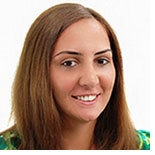
MARIAM GAVTADZE (2011-2012)
Since February 2011, I am the Human Rights in Patient Care Fellow in Georgia. My Fellowship is based at the NGO Georgian Young Lawyers’ Association whose aim is the protection of human rights and freedoms, promotion of the rule of law, awareness-raising and development of skills and professional ethics among lawyers. I earned my Law Degree at Tbilisi State University. In 2006 I continued my studies at the Georgian Institute of Public Affairs where I was awarded the LLM degree in International Law. My professional background in the human rights field includes several years work experience at the Ombudsman’s office of Georgia.
In addition, I think that one of the successful experiences that I had before my Fellowship in the patients’ rights field was my active participation in arguing a case before the European Court of Human Rights regarding ill-treatment and non-provision of adequate medical service at a penitentiary. As the healthcare field is continually developing, it is very important to meet new challenges and ensure delivery of quality medical care. At the same time, patients and healthcare providers should receive adequate protection of their rights. The Fellowship gives me the opportunity to further develop my professional skills and gain experience and knowledge in the area of human rights in patient care and thus be part of the above process.
I am happy to have participated in the creation and promotion of the Georgian version of the Practitioner Guide, which I consider to be a significant tool for enhancing the professionalism and qualifications of major stakeholders in the field. I believe that my active participation in the promotion of the Practitioner Guide, development of our special website for lawyers and healthcare professionals, and the creation of patient-friendly material and implementation of other activities in the Fellowship is mutually beneficial for my professional growth on the one hand and for the effective implementation of the program on the other hand.
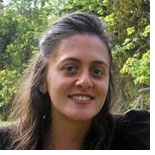
TAMAR DEKANOSIDZE (2010)
Since my first year of law school, I have been involved in investigating, reporting and providing legal analysis for cases of violence against children at the local NGO Tbilisi Youth House Foundation. Focusing on socially unprotected and particularly vulnerable groups of children, I gained insight into the hurdles law enforcement faces in dealing with underserved population.
I have had the opportunity to share my experience as a representative of Georgian NGOs at the United Nations and Council of Europe conferences focusing on children’s rights and strategies to encourage countries to “ACT NOW” to stop violence against children. Studying human rights in the United States as part of my undergraduate program and an internship with the International Human Rights Education Consortium in Utica, New York gave me human rights research skills and the experience of getting to know how international NGOs work in different parts of the world to promote and protect human rights.
Working on violence against children, I encountered some right to health and human rights in patient care cases. I am currently based at the NGO, Right to Health Association in Georgia. During the Fellowship, working on the Practitioner Guide has been my most exciting experience, as it made me realize the urgency and complexity of advocating for human rights in patient care in Georgia; it has helped me get acquainted with existing legal cases and obstacles lawyers face in dealing with them.
Follow Up: Tamar received a scholarship to Essex University in the UK for an LLM in International Human Rights Law. While there, Tamar volunteered for the Essex Human Rights Clinic Dale Farm Project regarding the forced eviction of the Roma community in the UK. Tamar also represented the University of Essex at the Jean Pictet international humanitarian law competition in France, as a part of the 3-member team (one of the 2 teams in the UK), where the Essex team was a semi-finalist. After completing the LLM, she was chosen for a 6-month internship with the International Secretariat of Amnesty International in London. Currently Tamar is conducting a transitional justice field research project at the Humanitarian Law Center Kosovo as a part of the Open Society Human Rights and Governance Grants Program. She will return to Georgia in January 2013 and continue her work there.
KAZAKHSTAN
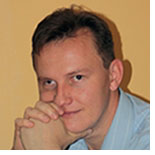
ARKADIY GAIDASH (2011)
My Fellowship in Human Rights and Patient Care, which I began in February 2011, is based in the Public Foundation Amansaulyk in Almaty. I am a lawyer and, prior to my Fellowship, taught at a university in Almaty, supervised students in a legal clinic that rendered free legal aid, and was engaged in scientific research in the field of civil law. I am interested in working in the area of human rights in patient care because I consider that the general legal culture, including the specific field of public health services, is very poorly developed in Kazakhstan today.
Even among professionals (lawyers and physicians), there are not enough experts who are able to apply rules or regulations protecting the rights of patients. Participation in such projects as the Practitioner Guide and its dissemination allows me to tell many people about their rights and duties. In addition, the opportunity to increase my own qualifications and skills is interesting to me. Conducting training sessions in the right to health for students of medicine and law has been the most interesting project of the Fellowship so far. Carrying out this training has allowed us to see the big discrepancy in insights of one generation regarding questions of the rights of the patient and the rights of the medical worker. However, despite clashes of opinions, the youth are ready for meaningful dialogue with a view of achievement of a lawful state and the protection of human rights.
KYRGYZSGTAN
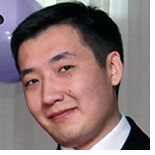
BEKTUR OSMONBAEV (2011-2012)
My Fellowship in Human Rights in Patient Care began in September 2011. It is hosted by the Public Foundation Legal Clinic Adilet, (LC Adilet), whose goal is promotion of human rights and the concept of democracy in the Kyrgyz Republic (KR). LC Adilet’s objectives are providing free legal assistance to vulnerable groups and increasing their legal awareness. It has participated in the development of laws of the KR on refugees, citizenship, HIV/AIDS, and children. Our beneficiaries include juveniles in conflict with the law, refugees, asylum seekers, people living with HIV/AIDS and vulnerable groups, prisoners, and other NGOs of beneficiaries.
In 2010, I graduated from the Kyrgyz-Russian Slavic University (Department of Law) and began an internship at LC Adilet, in which I worked as a legal assistant in a joint UNDP/ Ministry of Justice project educating people about proposed changes in the Constitution, and at the KR Central Election Commission during the parliamentary election. In November 2010, I was employed at LC Adilet as a lawyer. One of the principal tasks of my Fellowship is assistance in the development of the Practitioner Guide on Human Rights in Patient Care. Working on this project has allowed me to study the protection mechanisms and the legal base of human rights in health care in more detail. I am interested in this area because it is relatively new in the KR and its role is increasing worldwide. Creation of the Practitioner Guide (PG) is complicated, but at the same time, it is very interesting and will help me as a lawyer to work more qualitatively. I have realized the importance of this work, and I hope the PG developed by us will not gather dust on a shelf, but instead will be the working manual for the protection of fundamental human rights in the context of medical care in the Kyrgyz Republic.
MACEDONIA

ANGELINA METODIEVSKA (2013 - CURRENT)
I graduated at the Iustinianus Primus Faculty of Law in Skopje in June, 2011. Currently, I am a student on Master studies - Double Degree Programme in Intellectual Property Law offered by the Ss. Cyril and Methodius University (Iustinianus Primus Faculty of Law) and the University of Strasbourg (Centre for International Intellectual Property Studies).
During my studies, I have participated in the implementation of several projects and activities of different civil society organizations. Furthermore, during my prior work experience as a lawyer I became familiar with the monitoring of the legal framework in Macedonia.
I have worked at the Association for Emancipation, Solidarity and Equality of Women of the Republic of Macedonia – ESE, since June, 2012 as Assistant of the Program Women`s Human Rights. While working in this association I have gained knowledge and experience in providing legal aid and assistance to vulnerable categories of women, particularly women who are victims of domestic violence. I consider that alleviating the access of vulnerable categories of women to the different mechanisms for protection is crucial for providing effective and efficient protection. Moreover, my experience is upgrading with the engagement within the network for Antidiscrimination, where primary activities were focused on identifying different human rights violations, including violations of patient’s rights and exploring different legal instruments for protections. All these engagements incorporated constantly monitoring of the changes in the legislation and changes pertaining to human rights in patient care.
Starting with this Fellowship, I look forward to further expand my knowledge about human rights in patient care, while using the Practitioner Guide as an important tool for promoting and advancing the mentioned concept.
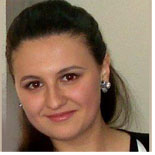
GABRIELA ALCHEVA (2012-2013)
I finished my Master studies recently at the Iustinianus Primus Faculty of Law in Skopje, where I studied international law and international relations. As a part of the provided program, I took part in simulation of cases before the European Court of Human Rights. I studied the international legal framework, as well as the international mechanisms for protection of human rights. I think that the knowledge acquired through this program represents an appropriate basis for starting successful and productive work in the Fellowship.
Since I have work experience as a law assistant, I am familiar with monitoring of changes in legislation, as well as with the preparation of revised text. The legal framework about the human rights in health care in Macedonia changes rapidly, so the monitoring of legislation is extremely important in order to keep up with the latest changes.
I obtain intuitions that help me to gain new knowledge about the human rights in my society. The Practitioner Guide about human rights in patient care is a very helpful and useful tool, not only for the practitioners, but also for every person who wants to better understand the essence of this topic. I consider human rights in health care problems as a crucial, inevitable and urgent issue that must be constantly monitored. Starting with this Fellowship, at the Association for Emancipation, Solidarity and Equality of Women - ESE, I look forward to expand my knowledge about human rights in patient care, and to have the chance to be practically involved in solving the mentioned issues.
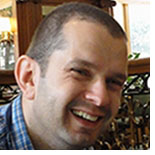
FILIP GEROVSKI (OCTOBER 2009- 2011)
I am a lawyer based at the Centre for Regional Policy Research and Cooperation Studiorum in Skopje, Republic of Macedonia, and I have completed my second year of LAHI/HRGGP/FOSM Fellowship in the field of Human Rights in Patient Care. Prior to my Fellowship, I had civil sector experience. During my studies, I worked on European Union related topics and education by volunteering with student organizations and domestic and international NGOs. I also served as an intern at the Secretariat for European Affairs.
After my graduation, I worked in one of the oldest Notary Offices in Macedonia for one year. In October 2009, I began my Fellowship at Studiorum, with close collaboration with the Association for Emancipation, Solidarity and Equality of Women of the Republic of Macedonia (ESE). Human rights is for me a core pillar of the law itself. No law or legal act should be adopted without respect for basic human rights. In each society, no matter how modern and developed, patients are a vulnerable group requiring special attention. Patients’ rights are violated on a daily basis and having the opportunity to work in this field of human rights in patient care and make a difference is a great responsibility as well as a life challenge. Each project that I worked on in the first year as part of the Fellowship was interesting and challenging in its own way.
Each piece gave me an additional perspective and taught me something new. During that year, I particularly looked forward to the trainings planned on the Practitioner Guide and was eager to share opinions and experiences with the participating legal and health professionals. In the second year of my Fellowship, I was engaged in various activities that deepened my knowledge and understanding of the health care system and health care legislation in Macedonia as well as on a European level. Undoubtedly, the most important activity that gave me great practical experience, enhanced my understanding of the health care system, and improved my legal skills was the internship at the Ombudsman’s office. There, under the guidance of a State Advisor and the Deputy Ombudsman who cover the field of health care, I was directly working on actual cases and complaints submitted by citizens.
Among other things, this internship provided me with the opportunity to identify some practical problems regarding the implementation of the laws, to learn more about the problems that patients and health professionals, as well as health care institutions, are facing in their day-to-day communication and interaction as part of the provision of healthcare. The participation in writing the part of the Annual Report regarding health care gave me access to some statistical data and different perspective regarding the health care system and citizens’ awareness of rights. Examples of other activities that I was engaged in during this year of the Fellowship include updating the Practitioners’ Guide according to the new and revised legislation, preparing a Patient-Friendly Version of the Practitioners’ Guide, preparing a policy brief regarding the Law on the Protection of Patients’ Rights, and organizing a training on human rights in patient care. Each of these, as well as other activities in the Fellowship, provides a different perspective on human rights in healthcare, which is quite challenging and useful for young lawyers interested in building a career in this field.
Follow Up: After completing his Fellowship, Filip passed the Macedonia bar exam in December 2011 and began work as a full-time staff member of one of his NGO Fellowship hosts, Studiorum.
RUSSIA
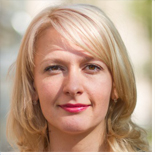
KATARINA DIKOVSKAYA (2013 - CURRENT)
In 2010, I graduated with a degree in law from North-West Academy of Public Administration under the President of Russia in St. Petersburg. My Human Rights in Patient Care Fellowship is based at the Charitable Foundation "Open Medical Club," whose aim is the assistance in education and health care information dissemination, knowledge exchange between health care providers, provision of legal assistance to patients and health care providers, social and legal assistance to vulnerable populations, and social and legal assistance to women.
For approximately ten years I have been working in the sector of NGOs and human rights. My experience includes helping to address the problems of access to health care for people without registration or who are homeless. This required my active correspondence with the Committee on Health and the Territorial Fund of Obligatory Medical Insurance.
I am interested in issues of human rights, including the right to health and discrimination issues. I view my fellowship as an opportunity to make a difference protecting the rights of people living with HIV and the law enforcement practice in this area. My fellowship helps me learn how to deal professionally in protecting the rights of vulnerable groups, and it provides more detailed study of some specific aspects of this activity.

ANNA BRAZHNIKOVA (2012)
Currently I am a student of St. Petersburg State University, where I am studying for a Master’s degree in Medical Law. Previously, I graduated from St. Petersburg State University of Engineering and Economics with a Bachelor’s degree in Civil Law.
Among the modules I am studying in medical law are Legal Regulations of Health Protection, Legal Basics of Health Care Quality, and Iatrogenic Issues. I think that these topics, along with others I study at the University, provide relevant knowledge and background for work in the Fellowship. During my previous studies, I also spent a semester in Germany at FH Schmalkalden where I studied Business Law and acquired a basic level competency in the German language. I have internship and working experience in municipal organizations and the banking and manufacturing industry.

JULIA KOCHNEVA (2011)
I am a recent law graduate of St. Petersburg State Faculty of Law where my diploma paper was about medical law and responsibilities. I studied limits and grounds of criminal responsibility of doctors, causal relationships with defects of care, influence of patient behavior on the degree of iatrogenic guilt of doctors. My mother has worked as a doctor for 20 years, so the problems doctors face are familiar to me. I began my Fellowship in Human Rights in Patient Care in February 2011, at the NGO Open Medical Club (OMC) in St. Petersburg.
OMC protects human rights in patient care and consults patients, doctors, other health care providers, and other NGOs. Goals and activities of its Law and Health project are assistance in health care education, knowledge exchange among health care workers, and providing legal support in the health care sphere. The activities of the Fellowship are a priceless experience.
I have learned to interact with our website users, analyze legislation, and understand that protection of human rights in Russia is possible. Although there are more infringements of patients’ rights, patients are not afraid to defend them. Consultations for web site questions take a tremendous amount of time and study to make responses of good quality. In preparing for legal cases, it is fascinating to search for evidence and to consider how it will be considered by a Court and whether the Court will accept it. I am finding new, interesting books about human rights in patient care (information, consent, free choice and confidentiality). In Russian law, the European Court plays a role, but it is the most extraordinary authority to protect human rights. The preparation of the Practitioner Guide (PG) is an important step in protecting human rights in patient care. In the most interesting project, I searched for and prepared practical examples of compliance or violation of particular rights and actual cases for the PG.
Follow up: Julia chose to continue her education by entering a Master of Criminal Law program in St. Petersburg after ending her Fellowship.
UKRAINE
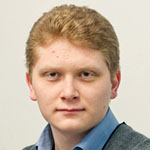
DMYTRO KLAPATYI (2012-CURRENT)
I am a fifth year law student of the Ivan Franko National University of Lviv and will complete by legal studies in May of this year. During my study at the law faculty, I participated in different academic circles, namely the Civil Law Club and History of the State and Law Academic Circle to make my knowledge of law more profound. For nearly three years I worked as a consultant at the legal clinic of the law faculty.
While working at the legal clinic, I had a good experience of solving different legal issues, providing clients with legal aid, and preparing different legal documents, namely court claims, and applications to the European Court of Human Rights. Work at the legal clinic and communication with the clients showed that the majority of those applying for legal aid are not aware of their rights, including those connected with patient care, and do not know how to protect their rights in case violations occur. The majority are members of vulnerable groups in the population.
Therefore, in order to make some contribution into the development of medical law, and in particular human rights in patient care, and to improve my practical skills, I started working on a voluntary basis at the NGO Foundation of Medical Law and Bioethics of Ukraine. While working at this organization, I enjoyed great opportunities connected with drafting different legal documents, providing people with legal aid, and updating the Practitioners’ Guide on Human Rights in Patient Care. I consider human rights in patient care issues to be very real and urgent in particular in our state, since these very issues deal with the life and health of a person, which are the most important values. The Fellowship that I am beginning now allows me to continue those activities and others and to gain more experience in this new field of law.

OLENA CHERNILEVSKA (2011)
I am based at the all-Ukrainian non-governmental organization Foundation of Medical Law and Bioethics of Ukraine, where I began my Fellowship in Human Rights in Patient Care in February 2011. Prior to my Fellowship, I worked for three years in the Laboratory of Practical Law (under the guidance of the Department of Law, Ivan Franko National University of Lviv), where I provided legal aid to people who needed it and participated in organizing the third and fourth All-Ukrainian (International) Scientific and Practical Conferences on Medical Law.
I am interested in medical law (this is a new branch of law for Ukraine and Ukrainian legislative system) and the Fellowship provides me a great chance to improve my theoretical knowledge of human rights and patient care and to develop some practical legal skills. Also the project is very useful for people (it does not matter which state they represent), because it aims to familiarize individuals with their rights and responsibilities in such an important social sphere as health care. Afterwards people will be able to protect these rights by themselves. I want to be among the people who will familiarize others with their rights and in this way help to protect them. The most interesting project of the Fellowship so far has been the Human Rights in Patient Care training, based upon the Practitioner Guide, which we held for advocates and lawyers of rights-protecting organizations. In addition, this year I participated in a series of three, short internships in other rights-protecting organizations in Ukraine: (1) one that works with legal and medical issues of clients who are HIV-positive, (2) one that works in the areas of prevention of HIV infection, drug addiction, dangerous sexual behavior, violence, and addictions and deviant behavior in children, teens, and young adults, and (3) one that is a hospice.
Follow Up: After completing her Fellowship, Olena accepted a position in the Prosecutor’s Office in Ukraine, beginning in February 2012.
OKSANA KOHUT (2010)
I was working in the legal clinic at Law Faculty of Lviv National Ivan Franko University for five years, first as a student, then as a consultant (legal adviser in civil, medical, and labor law cases). There I became interested in medical affairs. I chose to focus my studies and practical work on human rights in health care. This field is new, interesting, and important for our country and for the international community. While working, I became aware of serious gaps: firstly, there is insufficient research and a lack of literature on the subject, secondly, there are few professional experts in this area.
I am working at the Ukrainian public organization, Foundation of Medical Law and Bioethics of Ukraine, which aims to develop medical law and bioethics as a science, discipline, and field of law. The Foundation has various areas of work: clarification of the law through the taking of cases, publishing, and scientific research. I find most interesting my work in court, analyzing cases, and drafting procedural documents and consultations. For the time being, I am learning a lot about strategy and tactics for sourcing health cases, collecting evidence, and preparing court documents. I am starting to take part in consultations and drafting procedural documents. I am also involved in research and am planning to write a dissertation. I try to use every opportunity to join in training activities. This Fellowship’s comprehensive approach has enabled the continuation my education, while I am gaining practical experience.
Follow Up: Since completing her Fellowship, Oksana has been studying for a Master of International Public Affairs in Italy.
